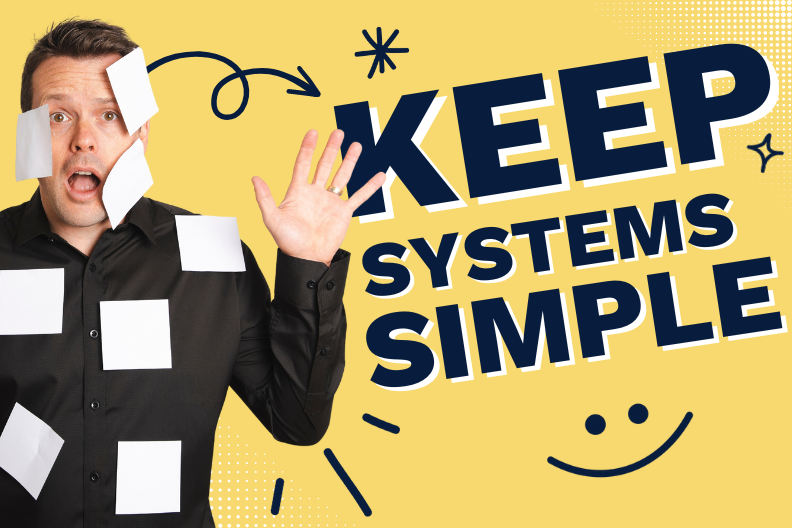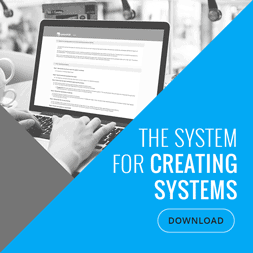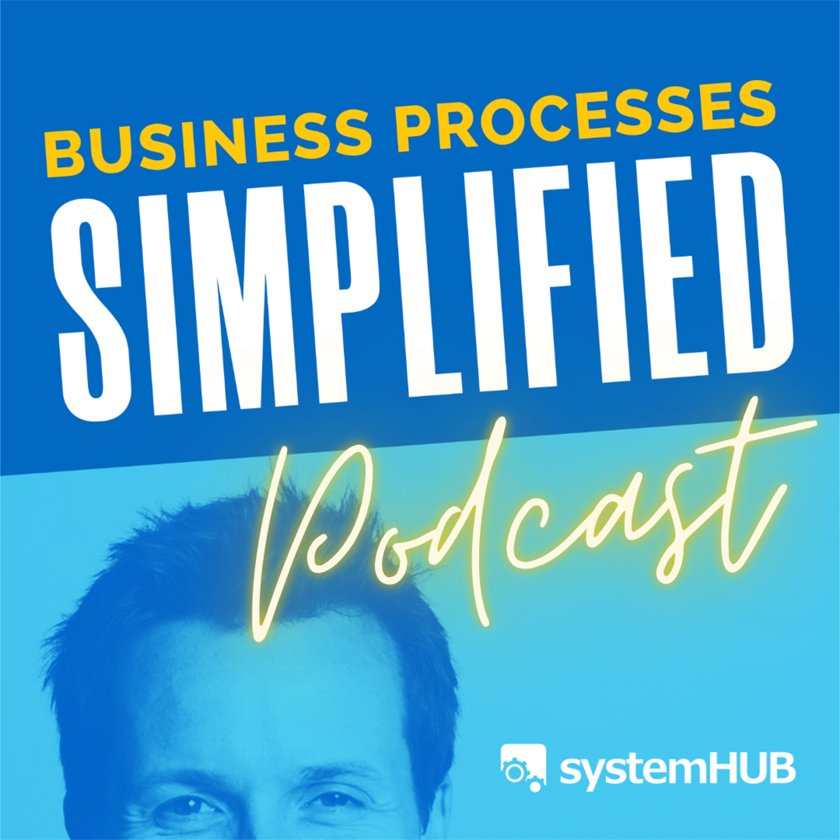Key Takeaways:
- Simplifying business processes and implementing efficient systems is crucial for business growth.
- Many business owners struggle to systemize their operations.
- Common challenges to simplifying business processes include being overwhelmed and not knowing where to start.
- To overcome these challenges, focus on simplification by breaking down processes into smaller parts.
- Not systemizing your business can lead to increased stress and hindered business growth.
- Streamlined systemization is urgent for reducing stress and enhancing productivity.
A question for you, the business owner…
What’s getting in the way of systemizing your business to the level you would have liked?
Simplifying business processes and having efficient systems are critical for an organization’s growth. It’s such a clear and simple concept — yet many business owners struggle to systemize their business to the level they want, if at all.
And there’s no fault or shame in admitting that! Simplifying work processes takes time and effort to get it right and produce results.
In this blog post, we’ll explore what gets in the way of systemizing your business and offer practical tips to help you simplify the process and achieve success.
What Gets in the Way of Simplifying Business Processes?
Let’s delve into the common challenges that business owners face. There are usually four reasons business owners have a hard time simplifying their processes:
- They feel overwhelmed. The workload can make the systemization process seem overwhelming.
- They’re understaffed. Limited resources and a shortage of staff can slow down progress.
- They feel overloaded. Managing multiple tasks and responsibilities leaves little time for systemization.
- They’re not sure where to start. Not knowing how to begin the process adds to the difficulty.
These feelings mostly come from the expectations about what a systemized business should look like and what a documented process should be and cause mental baggage that strains business owners. Many may compare themselves to successful companies like McDonald’s and feel they have a long way to go. This thinking can overwhelm you, making the process seem too complex and unattainable.
To overcome this hurdle, or, at the very least, reduce the feeling of overwhelm, would you believe the solution is also to simplify the process?
Feel Less Overwhelmed by Simplifying the Process
To overcome the overwhelm, focus on simplification.
Great systems consist of smaller, equally great systems. Start by breaking down your processes into smaller, more manageable parts.
Instead of tackling everything at once, focus on the simplest possible piece. That is, focusing on one product or service your business offers, which is what the Critical Client Flow (CCF) is about.
As the business owner, initiating the CCF with your team becomes your primary responsibility. Once you prioritize that product or service, you can develop systems and processes that help your team consistently deliver high-quality results without your constant supervision.
What is the Critical Client Flow from SYSTEMology?
Can you explain what your business does on just one page? You can answer that with the CCF.
The CCF is the first stage of systemization, and it involves deciding which systems to create first. These initial systems then become your critical systems. To do that, you need to see an overview of your business’s core functions, products, or services without all the extra details.
It’s easy and tempting to go into a lot of detail and tackle many things, such as multiple target audiences, product lines, or variations, but you’ll get confused and create overload if you go too hard too soon. With this, you can see your business in terms of how it attracts customers, handles enquiries, processes sales, and more.
Listen to Dave Jenyns talk about this in more detail in Understanding CCF.
What’s the Cost of Not Systemizing?
Another thing that gets in the way of business systemization is when business owners think it shouldn’t be a priority, that there are much more urgent tasks to focus on, like your daily operations or administrative tasks.
See, here’s why that’s counterproductive.
It’s not enough that you recognize systems as important. You should also see them as urgent.
While systemizing your business may not feel urgent, it’s costing you more than you realize. It’s:
- Creating stress, as disorganized processes lead to an increased burden for you and your team;
- Taking time away from important tasks, both inside and outside of the workplace;
- Robbing efficiency from your team; and
- Hindering your business growth.
If you’re constantly grinding away on day-to-day operations and working on tasks that aren’t scalable, your business won’t grow to its full potential. Focus on tasks that provide lifetime value, such as creating systems that enable your team to deliver consistently.
Why Systems Are Urgent — The Benefits of Systemizing Your Business
So, how do you shift the importance of systemizing your business from “important but not urgent” to “important and urgent?”
First, understand that you can benefit greatly from it.
You might need a refresher on the advantages of systemizing your business. By prioritizing systemization, you can:
- Streamline your processes.Simplifying and documenting your processes increases efficiency and reduces errors.
- Reduce stress. Clear processes and streamlined operations alleviate stress for you and your team.
- Enhance efficiency and productivity. Systemization allows your team to work more effectively.
- Free up time. With systems in place, you and your team can focus on long-term, value-adding tasks that contribute to growth.
Imagine having well-documented processes that allow your team to seamlessly handle customer enquiries, deliver products or services efficiently, and resolve issues promptly. These streamlined processes not only enhance customer satisfaction, but also free up valuable time for you and your team to focus on strategic initiatives, such as developing new products, expanding into new markets, or nurturing key client relationships.
By systemizing your business, you create a foundation for scalability, ensuring your operations can grow and adapt as your customer base expands.
Get Started on Systemizing Your Business
Simplifying your business processes means breaking down complex tasks into smaller, more manageable pieces. It’s important because it helps you focus on what’s most important to your business. By identifying the most crucial parts of your business and streamlining them, you can improve your results, free up your time, and work towards efficiency, growth, and success.
To the overwhelmed business owner, here’s something to remember: the path to a systemized business may seem daunting, but every journey begins with a single step. Tackle one thing at a time, focus on CCF, and prioritize system-building. Remember that systemizing your business is an ongoing process, and it may take time to reach your goals.
If you’re still struggling with systemization, whether it’s taking the first step or detangling your existing systems, we at SYSTEMology are here to help. Reach out to us today!








